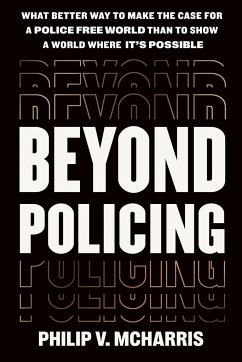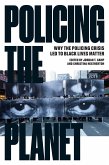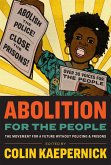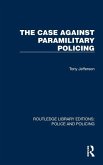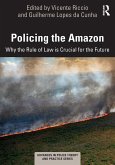In the tradition of New York Times bestseller The World Without Us, millennial Princeton and Yale scholar and notable activist Philip V. McHarris writes a galvanizing book that charts an exit plan from the current law enforcement paradigm and imagines a police free society that is possible.
Hinweis: Dieser Artikel kann nur an eine deutsche Lieferadresse ausgeliefert werden.
Hinweis: Dieser Artikel kann nur an eine deutsche Lieferadresse ausgeliefert werden.

